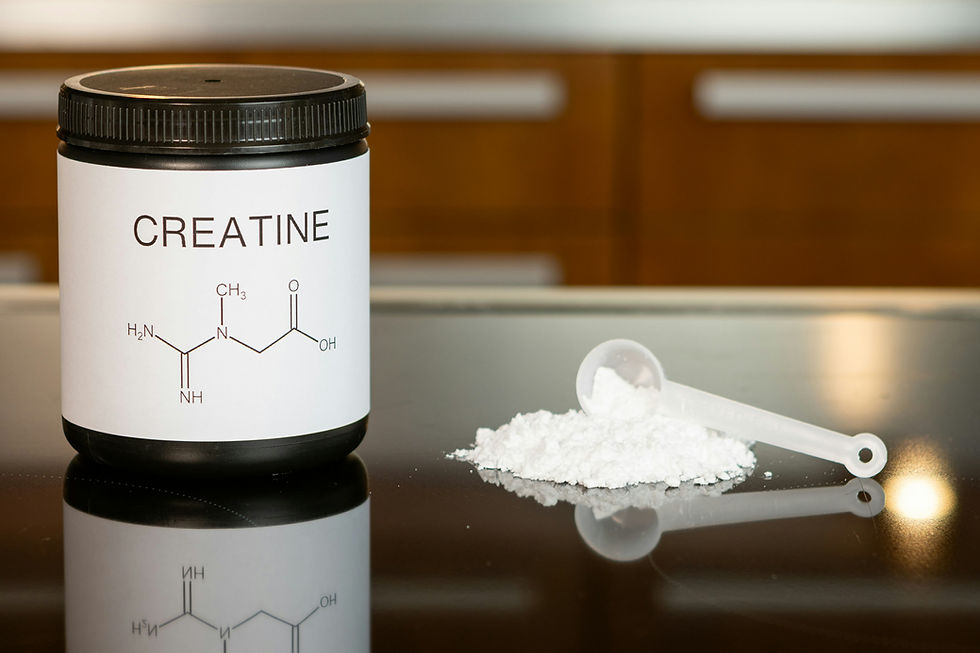Being good enough...
- Amanda Heading
- Sep 7, 2025
- 5 min read

I’ve never wanted perfection…being good enough is fine for me.
Being good enough means you’re achieving what you wanted or needed to, ticked the box, and then moving on to the next level or goal. It’s more a steady progression, rather than a fanfare of arrival.
But what happens when you realise that you’re not actually good enough?
I’ve always been a ‘jack-of-all-trades’, pretty talented in most sports, not brilliant, and never with a natural gift or flare. As a result, I’ve never been a perfectionist, but I’ve always tried to do things as well as I can. My Dad used to say “If a job’s worth doing, it’s worth doing well”. He told me if I could achieve anything if I worked hard enough. So, whatever I’ve done, I’ve tried to do my best. And that’s where working hard, physically and mentally has always helped. It’s won me races, tournaments, accolades and awards.
And in doing so, I’ve always been very aware of my limitations. But rather than letting these stop me, it’s given me the opportunity to find ways to overcome, make up for and reduce their effect. Marginal gains is a term well used in sport, and I’ve been doing that for years. What else can I do to make improvements, where can I limit my weaknesses, where can I exploit my strengths? What else do I need to learn? And how can I do things differently? I’ve found this strategy useful both in life and work, not just sport.
But what happens when all this work, hard effort, persistence and dedication doesn't get you where you want? That actually, despite all this, you’re not good enough?
It’s quite a sobering.
I’ve had a couple of running goals I wanted to achieve this year: one was the Mount Fuji Ultra in April, and all went to plan. Maybe I should have stopped at that.
The second was to qualify for a much longer non-stop road race, which combined both endurance and speed. Just under six, hilly marathons non-stop, in 36 hours. And for this, I needed to get faster, which meant specific speedwork. Now, I’ve always been a plodder. Slow, steady, but always keeping going. But I’ve been fascinated with the idea of combining both speed and distance, something I achieved when I ran the Bob Graham Round in the Lake District, covering 42 of the highest peaks, ascending 27,000 feet/8000+ metres over 66 miles in 24 hours, and the Comrades 90km/56mile non-stop uphill road race in well under 9 hours. Both back in 2010. Fifteen years ago. I’ve always known that running faster at the grand old age of 58 would be a hard task, especially as no one would call my running style ‘dynamic’. But I wanted to try.
It hasn’t helped that a virus derailed my training for a couple of weeks. I’ve then had some thyroid issues, the medication of which made me worse, so that interrupted another four weeks. And suddenly, my qualifying race is 5 weeks away, and, with all the will in the world, I’m not ready. I’ve lost training time, I’m not where I need to be at this point, the numbers don’t stack up, and because of this, with all the will in the world, I won’t be able to do it. I’m not good enough.
And that’s hard to take. Remember, I was told I could achieve anything I wanted if I worked hard, if I kept showing up, doing the training - the improvements would come. Well, they haven’t. Spoiler Alert - it’s a bit like believing in Father Christmas, then finding out that he doesn’t exist.
So, what’s the big deal here? Well, firstly, this was an aim I’ve carried with me for 15 years – my plans were derailed in 2010, when family illness meant, quite rightly, I had other responsibilities. But amongst the long-term, long-distance care of my parents, support of my husband and his health challenges, the care of my physio patients and nutrition clients since then, this was something for me. Running, and aiming for this race, was my form of self-care.
Secondly - and I hate to admit it - even back in 2010, a coach told me it was unlikely that, physiologically, I could achieve the qualifying time I wanted. I didn’t want to accept that, I wanted to prove him wrong. With hard work I could do this, right..?
And finally, it's really brought home how different my father is now, from the positive, supportive and encouraging 'can-do' person, who guided me in my youth. It highlights
the stark reality that my Dad, a wonderful role model of hard work, integrity, conservative morals and quiet humility, has lost so much of himself and his life through ill health over the last 60 years. What he said about hard work alone, isn't true. And the person he was, isn't there any more.
So, in a way, it feels a bit like loss: a loss of beliefs, of part of myself and of my Dad.
But before we spiral down into a pit of despair, we need to remember that, whilst personal goals are important, have meaning and should be pursued, we need to keep perspective regarding how lucky we are. I have two successful businesses which are thriving, a lovely home, husband, friends and two happy dogs. I live in a beautiful part of the world. I am very lucky.
I remind myself that, no matter how important these goals might be for me, it’s really a case of ‘first world problems’. A friend of mine, same age as me, had a catastrophic stroke last week and has lost his ability to walk and talk. My father of 90 has relied on care staff to feed, wash and move him for over 30 years. Wars around the world continue. People are losing loved ones every day. I have two arms and legs which work, and I’m complaining that I can’t run fast enough...
So, I made the decision to stop. Stop running, stop complaining, take a step back and get some perspective.
Is this giving up, or resetting?
Not being good enough is quite hard to stomach, but it doesn’t mean I’ll never be good enough. If you’ve ever read ‘Black Box Thinking’, you’ll know that failures are essential for later success, as long as we reflect and work out how to do things differently. This approach is relevant to any challenge in life, whether it’s health, work, relationships or our sporting endeavours. But we have to learn from our mistakes, not keep repeating them. Keep getting injured? Unable to sustain your healthy diet? Fallen off the bandwagon regarding booze? Or you may have been working really hard on your health, only to find your recent test results don't reflect this. Or despite your training efforts, you don't make your race time, or like me, even to the start line......
Sometimes stopping, taking time out and working out how you can approach things differently, may help you succeed. Accepting the situation, then making a plan for future action. And when the time is right, doing it.
I’m enjoying taking life a bit more slowly, having early nights and reading a book called Wabi Sabi, which reframes 'failure' and suggests we're all 'perfectly imperfect'. It explores the idea of simplifying life and concentrating on what really matters.
And when I’m ready, I’ll make a new plan, get back into training and find the joy in it again. Who knows, in time and with different preparation, and more consistent health, I may be good enough. Or I may have moved on to other things entirely…
Whatever your goals, whatever your age, keep pursuing them. Don't be so focussed that you miss the point entirely, or become too inflexible to change your approach. Know when to back off, when to strive forwards, and always keep perspective.




